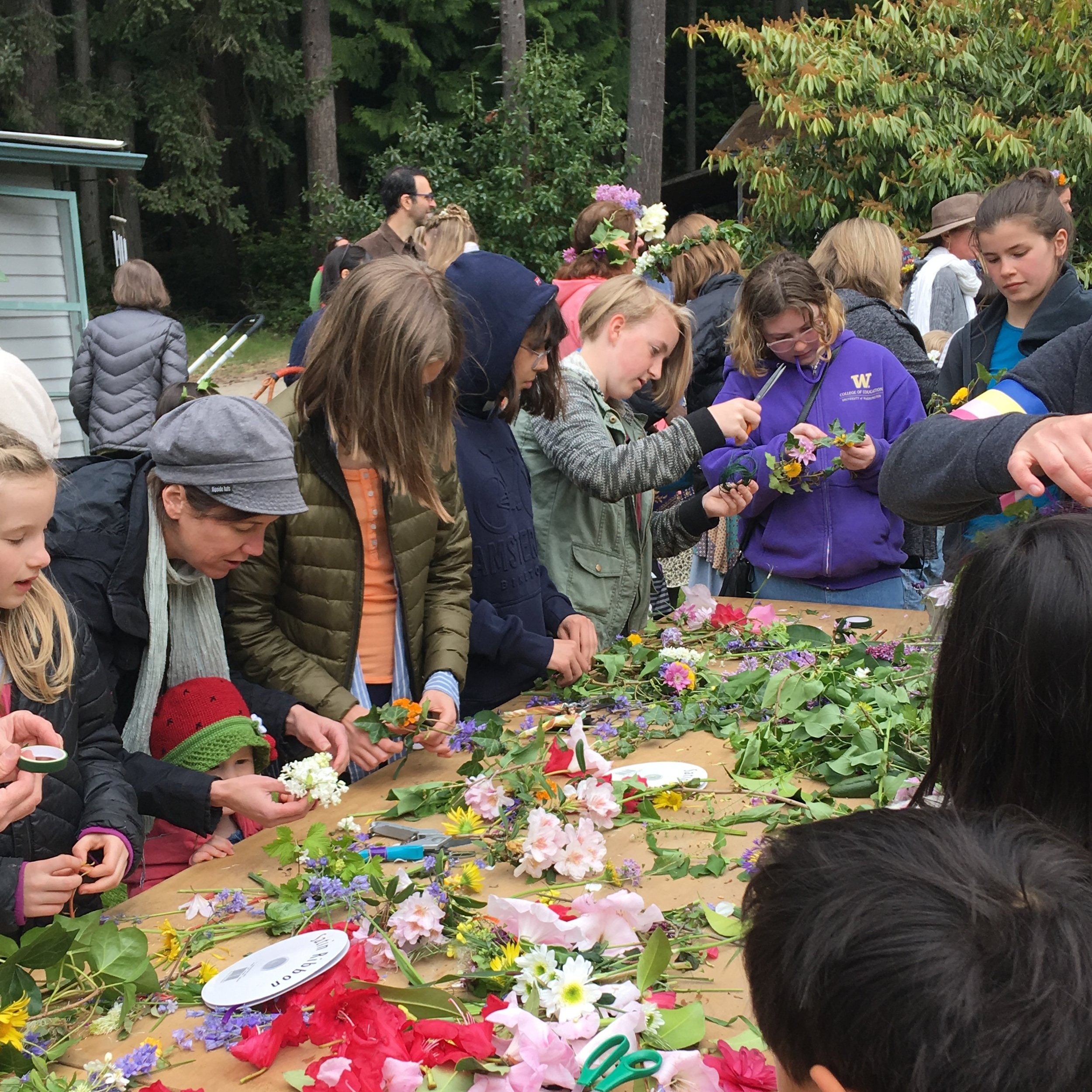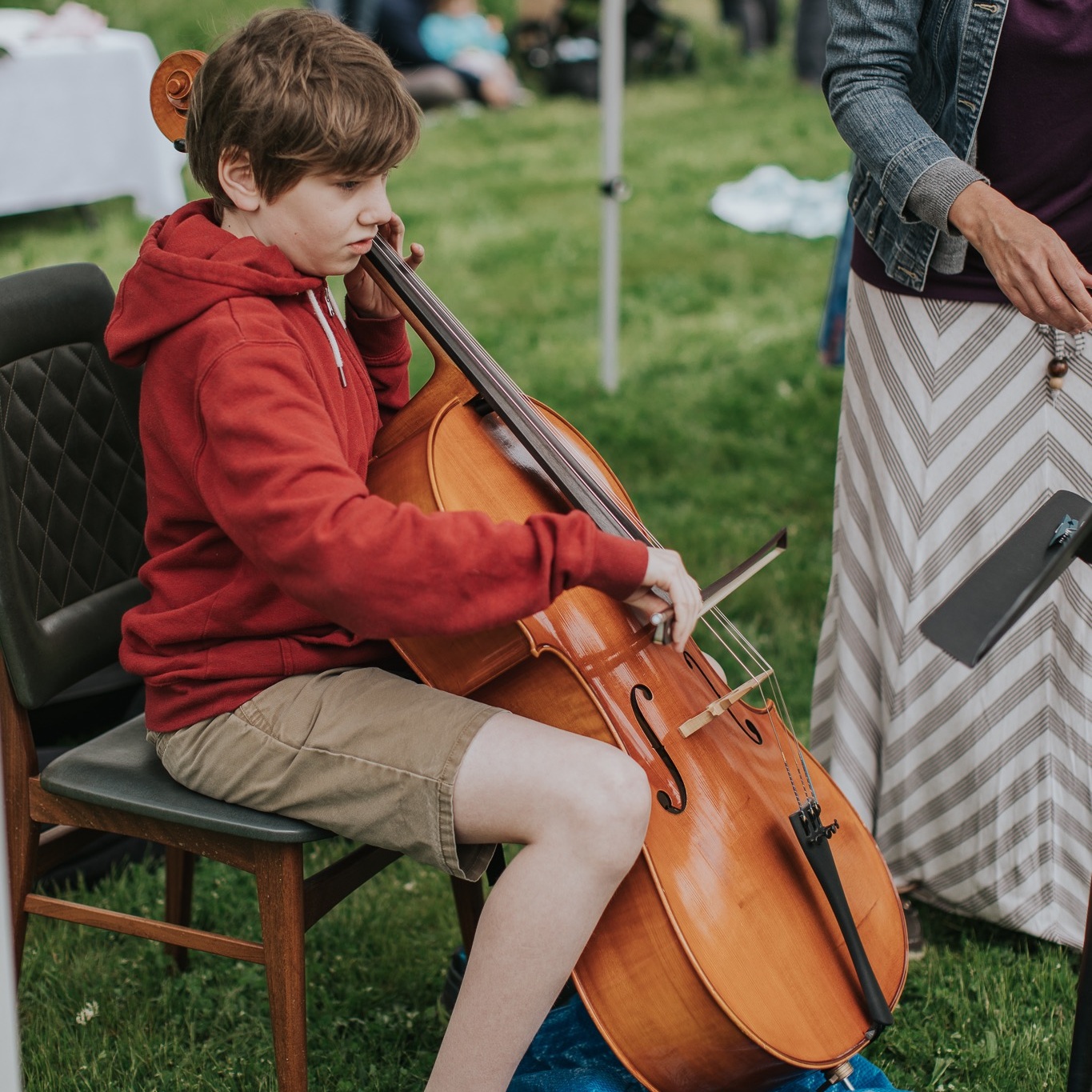Our celebration of what makes a Madrona School Waldorf education unique continues with… M for music!


Music in its most basic rhythmic form surrounds us from our earliest days -- heartbeat and breath, and eventually those sweet, simple lullabies from our parents and caregivers. There are many books and articles to explain different ways our brains benefit from music, its relationship with math, with memory, and on and on. Music infuses our curriculum at Madrona School too. There are songs for all the work and transitions in our early childhood classes, and during circles throughout the grades. We sing as classes and at assemblies, we play flutes and recorders, and 4th graders choose a stringed instrument, playing and reading music together through 8th grade. Music helps our students practice pattern recognition (good for reading and math!), creativity of expression, and collaboration through ensemble work, not to mention improvement through the discipline of a daily practice. Music offers an expression of joyful organization and speaks to us on so many levels; its daily integration in the curriculum is truly something to treasure!
—adapted from our weekly email newsletter


























